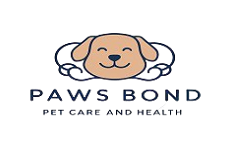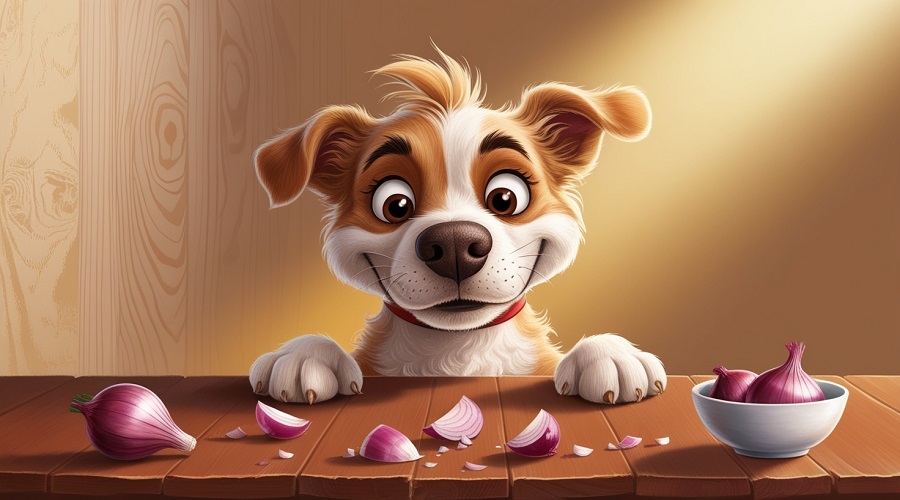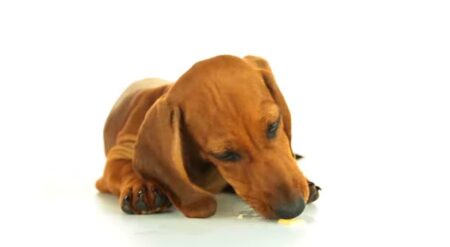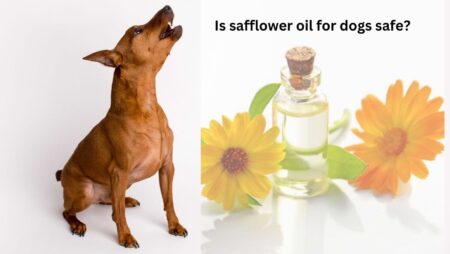It can be frightening to find that your dog has consumed onions because they are poisonous to dogs and can lead to major health issues. Hemolytic anemia is a disorder when a dog’s red blood cells are damaged by substances found in onions. Symptoms like weakness, lethargy, pale gums, diarrhea, vomiting, and breathing difficulties may arise from this. To protect your dog’s wellbeing, you must act quickly if you think they may have eaten onions. For advice on what to do next, get in touch with your veterinarian or a pet poison control hotline. Based on the quantity of onions ingested as well as your dog’s size and overall condition, your veterinarian can suggest supportive care, hospitalization for extensive therapy, vomiting induction, or even activated charcoal. Quick action is
What is Onion Poisoning?
When dogs consume onions or foods connected to them that contain substances that can harm their red blood cells, they can get onion poisoning, sometimes referred to as onion toxicity or Allium toxicity. Hemolytic anemia is caused by these substances, which include thiosulfate and n-propyl disulfide, which cause oxidative destruction to hemoglobin in the blood. Onion poisoning symptoms can include pale gums, fatigue, lethargy, vomiting, diarrhea, and trouble breathing. Onion poisoning can be fatal in extreme circumstances and may call for immediate veterinarian care. It is imperative to refrain from giving dogs onions or foods containing onions, and in the event that ingestion occurs, to seek medical assistance right once.
Determine how much onion your dog consumed
To evaluate the possible risk, you must ascertain how much onion your dog ate. If at all feasible, evaluate the quantity or size of the onion consumed as well as the amount of onions present in the dish. Lethargy, weakness, vomiting, and diarrhea are examples of symptoms that can show how serious an intake was. The amount of time since ingestion is also significant; recent ingestion may justify causing vomiting. Onions, however, can be toxic to dogs in even minute doses, so if ingestion is suspected, it’s imperative to seek veterinarian attention right once. To ensure a precise assessment, be ready to give your veterinarian as much information as you can.
How much Onion can a dog safely eat?
Dogs should not consume any amount of onion as it is toxic to them. Even small quantities of onion, whether raw, cooked, or in powdered form, can potentially lead to onion poisoning and cause harm to a dog’s health. The compounds present in onions, such as thiosulfate, can damage a dog’s red blood cells, leading to a condition called hemolytic anemia. Symptoms may include weakness, lethargy, vomiting, diarrhea, pale gums, and difficulty breathing. Therefore, it’s essential to avoid feeding onions or any foods containing onions to dogs and to seek immediate veterinary care if ingestion occurs.
Symptoms of Onion Poisoning in Dogs
Symptoms of onion poisoning in dogs may include:
1. Throwing up
2. The diarrhea
3. Lethargic behavior
4. Weakness
5. Pale gums
6. Quick heartbeat
7. Labored respiration; 8. Collapsing
9. Brown or reddish pee
10. Jaundice, or yellowing of the eyes or skin
11. Increased bodily warmth
The severity of these symptoms can vary based on the quantity of onion consumed as well as the size, age, and general health of the particular dog. It is imperative that you seek veterinarian care right away for an accurate diagnosis and treatment if you believe your dog has eaten onions or is displaying any of these symptoms. If treatment for onion poisoning is delayed, the condition may become fatal.
What Is Onion Toxicity?
The term “onion toxicity,” which is also used to describe onion poisoning or allium toxicity, describes the negative consequences that eating onions can have on dogs. Compounds found in onions, such as thiosulfate, have the potential to oxidative harm a dog’s red blood cells, resulting in hemolytic anemia. This causes the oxygen-carrying capacity to decrease and red blood cells to be destroyed, resulting in symptoms including weakness, lethargy, vomiting, diarrhea, pale gums, and breathing difficulties. Onion toxicity can be fatal in extreme circumstances, necessitating prompt veterinary care to treat the underlying illness and provide supportive care. It’s critical to keep dogs away from onions and to get them help right away if they do get ingested.
Take your dog to the vet
It’s critical to take your dog to the doctor right away if you think they may have eaten onions or if they are exhibiting symptoms of onion toxicity. Serious health issues, such as hemolytic anemia, which can be fatal if left untreated, can result from onion toxicity.
In order to determine the degree of toxicity and any red blood cell damage, the veterinarian will examine your dog in-depth at the clinic and may order diagnostic procedures like blood work. In order to clear the stomach of any leftover onions, treatment options may include inducing vomiting, giving activated charcoal to absorb toxins, giving intravenous fluids to improve kidney function and hydration, and giving medication to treat symptoms including diarrhea, vomiting, and anemia.
In order to ensure a positive outcome, it is imperative that you seek veterinarian care as soon as you believe your dog has consumed onions or is exhibiting symptoms of onion toxicity.
How Quickly Should You Take Your Dog to the Vet?
It’s critical to take your dog to the doctor right away if you think they may have eaten onions or if they are exhibiting symptoms of onion toxicity. When it comes to possible poisoning, time is of the key because prompt treatment can significantly enhance your dog’s prognosis and outcome.
Ideally, as soon as you see any indications of onion toxicity or consumption, you should contact a veterinarian. If treatment is put off for too long, the toxins may cause greater harm to your dog’s red blood cells and more serious issues, such as potentially fatal diseases like hemolytic anemia.
If you have any worries about the health of your dog or feel they may have an illness, it’s always best to err on the side of caution and get veterinary attention as soon as possible
Treatment of Onion Poisoning in Dogs
When a dog has onion poisoning, there are usually multiple processes involved in treating the toxicity and promoting the dog’s healing. An outline of the therapy procedure is provided below:
Inducing Vomiting: In order to get rid of any leftover onions in the stomach, the veterinarian may induce vomiting if the dog or cat recently consumed onions—within the last one to two hours. This may aid in halting more toxin absorption.
Administering Activated Charcoal: Toxins that are still in the stomach and intestines can be absorbed orally with activated charcoal, which will lessen their absorption into the bloodstream.
Fluid Therapy: Fluids are frequently injected intravenously to assist dogs stay hydrated and remove toxins from their bodies. Additionally, it prevents dehydration and supports kidney function.
Monitoring: The dog will be closely observed for any indications of deteriorating health problems, such as organ damage or anemia. To evaluate the degree of red blood cell damage and ascertain the severity of the poisoning, blood tests may be carried out.
Symptomatic Treatment: To treat symptoms including nausea, vomiting, and diarrhea, medications may be administered. Blood transfusions could be required in extreme circumstances to replenish damaged red blood cells and enhance the supply of oxygen to organs.
Hospitalization: The dog may require hospitalization for extensive care and monitoring until their condition stabilizes, depending on the severity of the poisoning..
To guarantee your dog’s complete recovery after being released from the hospital, it’s critical to carefully adhere to your veterinarian’s advice and offer supportive care at home. In order to prevent future exposure to onions and other hazardous compounds, preventive precautions should also be performed.
How do onion harm dogs?
Dogs are poisoned by substances found in onions, such as thiosulfate and N-propyl disulfide. These substances have the potential to harm a dog’s red blood cells when consumed, which can result in hemolytic anemia. This process leads to the rupture and loss of red blood cells because the chemicals oxidize hemoglobin, the protein in the blood that carries oxygen. As a result, the dog has symptoms like weakness, lethargy, pale gums, vomiting, diarrhea, and difficulty breathing. This compromises the dog’s ability to carry oxygen to tissues. Onion toxicity can be fatal in extreme circumstances, necessitating prompt veterinary care to treat the underlying illness and provide supportive care.
Recovery of Onion Poisoning in Dogs
The amount of onions consumed, the size and condition of the dog, and the timing of veterinary care are all important variables in the recovery process from onion poisoning in dogs. A lot of dogs can recover from onion poisoning and get well again with prompt and proper care. Here are some things to anticipate during recovering:
Hospitalization: Dogs who suffer from severe onion poisoning might need to be admitted to the hospital for close observation and critical care. This enables vets to help the dog’s healing as needed by giving it water, drugs, and other supportive therapies.
Symptomatic Relief: To treat symptoms including nausea, vomiting, and diarrhea, medications may be administered. These drugs aid in the dog’s comfort while their body breaks down and gets rid of the poisons.
Fluid Therapy: Intravenous fluids are frequently given to dogs in order to support hydration, preserve kidney function, and help remove toxins from their systems. This is essential to maintaining the dog’s general health and avoiding dehydration.
Blood Transfusions: Blood transfusions may be required in extreme cases of onion poisoning if the dog has experienced severe anemia in order to restore damaged red blood cells and enhance oxygen transport to tissues.
Monitoring: The dog will be constantly observed for any indications of improvement or worsening of symptoms during the recuperation period. Periodic blood tests may be conducted to evaluate the overall health condition and red blood cell numbers.
Home Care: The dog may be released from the hospital with instructions for at-home care once they are stable and able to eat and drink on their own. This can entail following up with the veterinarian, administering medication, and imposing dietary restrictions..
When dogs receive immediate veterinarian attention, the prognosis for recovery from onion poisoning is often excellent. To guarantee the dog’s full recovery, you must attentively adhere to your veterinarian’s advice and offer supportive care at home. In order to prevent future exposure to onions and other hazardous compounds, preventive precautions should also be performed.
Conclusion
Onion poisoning in dogs is a severe health risk that, if left untreated, can result in possibly fatal consequences. Certain substances found in onions have the potential to harm a dog’s red blood cells, leading to hemolytic anemia and a host of symptoms such as weakness, fatigue, vomiting, diarrhea, and dyspnea. Providing supportive care and treatment, such as causing vomiting, giving activated charcoal, administering fluid therapy, and in extreme circumstances, blood transfusions, requires prompt veterinarian intervention. Prevention is essential, even though many dogs can recover from onion poisoning with prompt medical attention and supportive care. Take care to prevent accidental ingestion and refrain from giving dogs onions or any food containing onions. Pet owners may help keep their dogs safe from harm by being watchful










